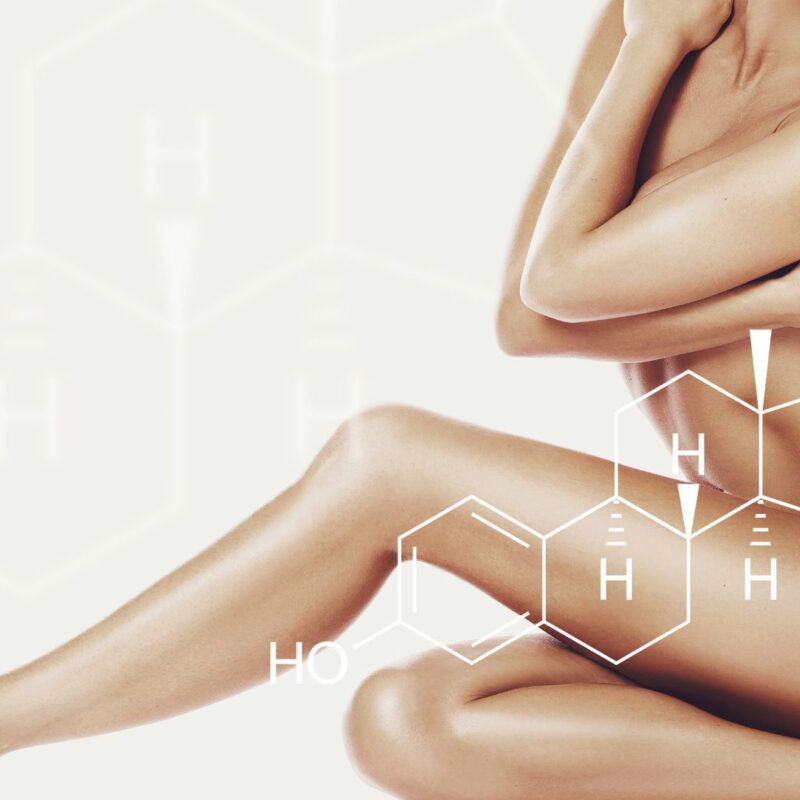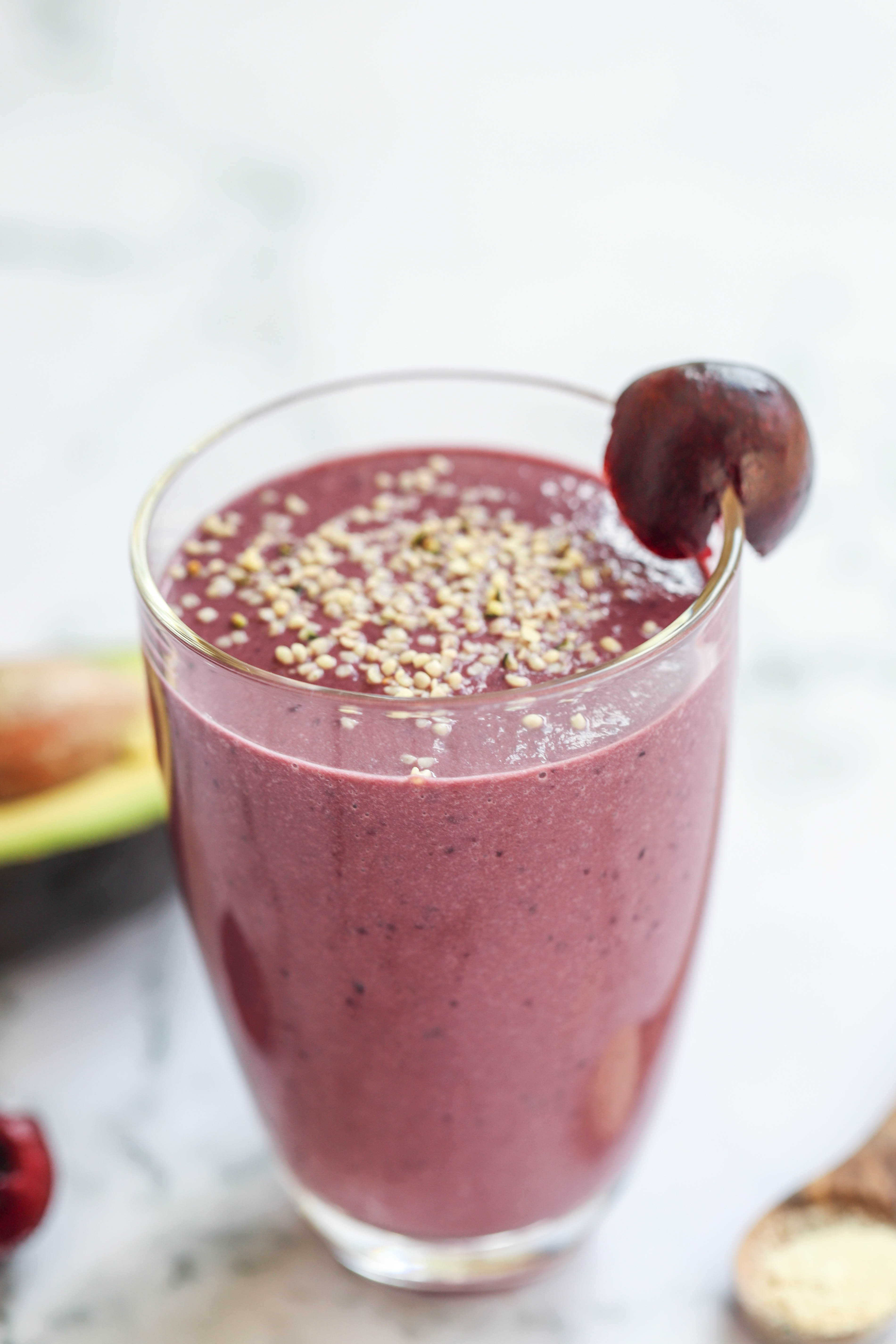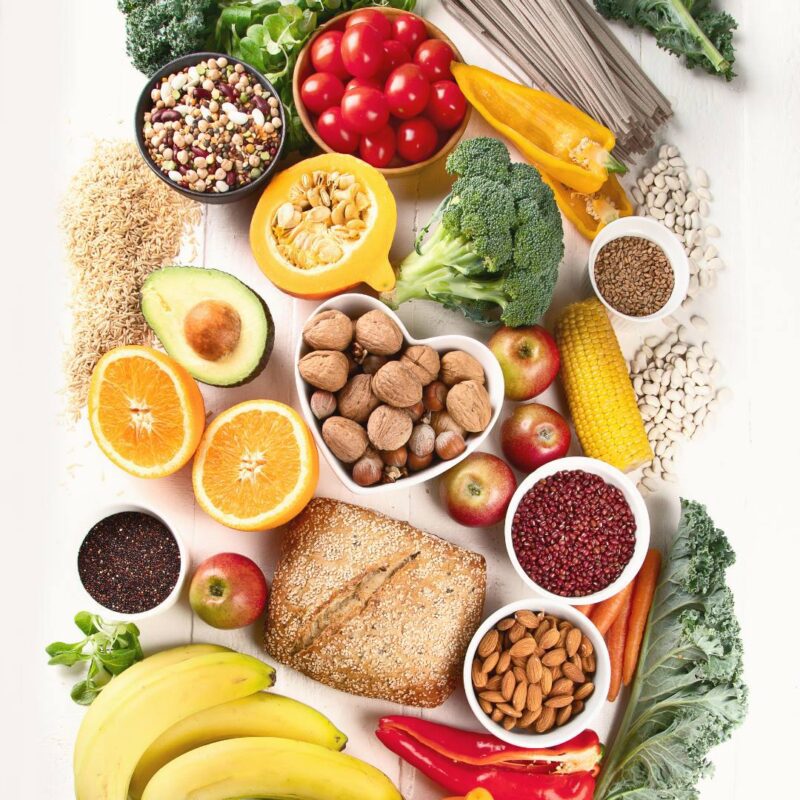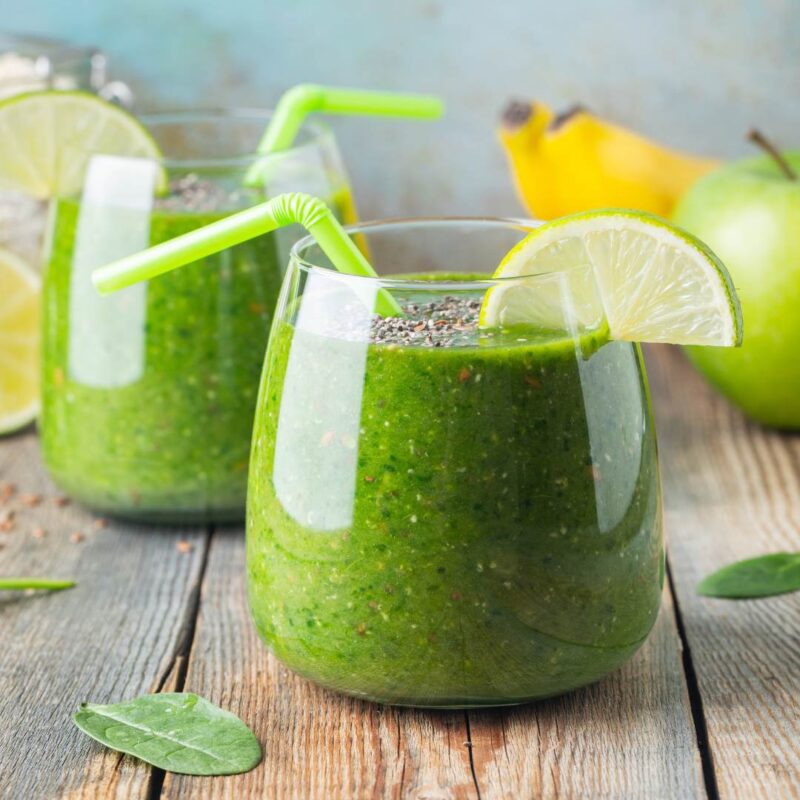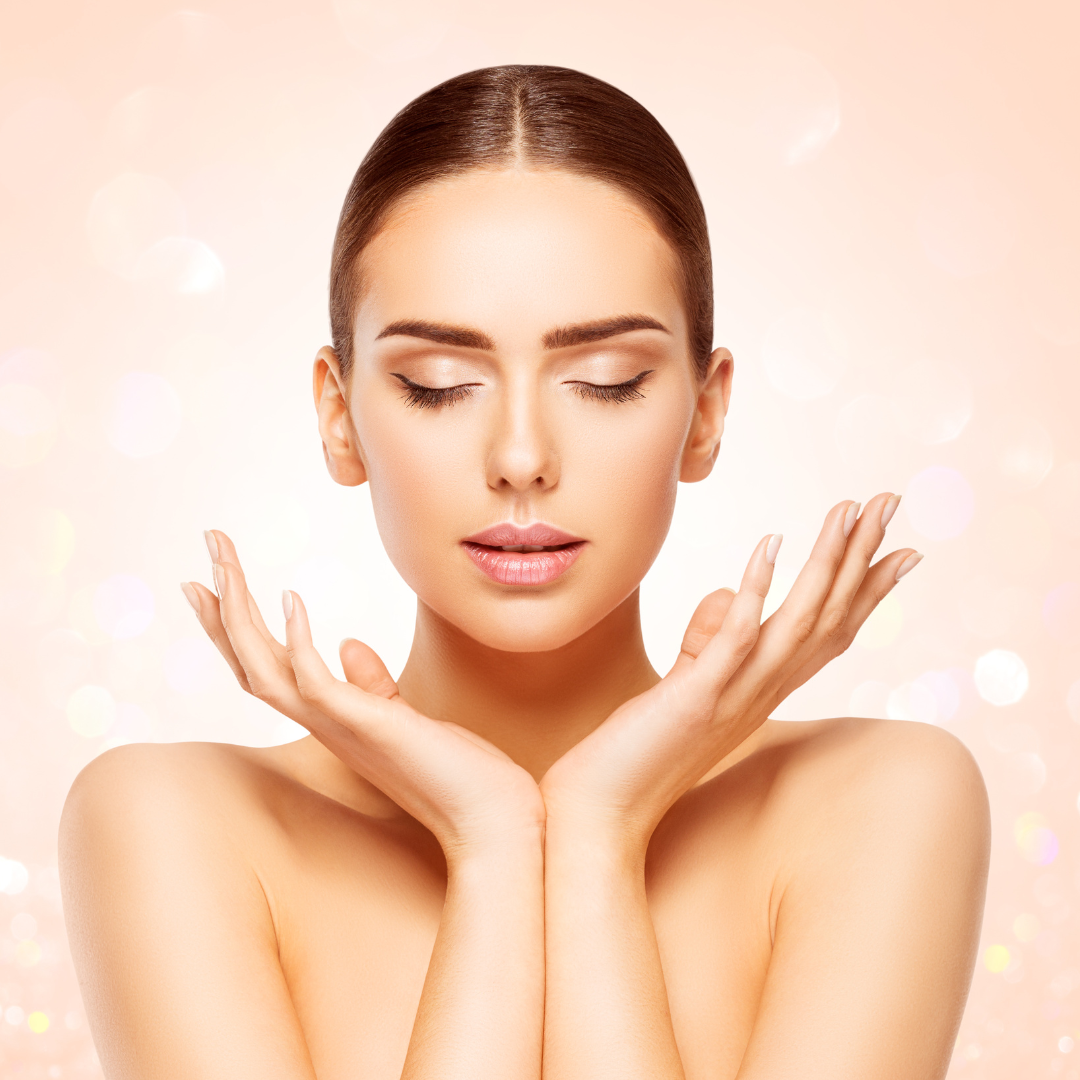
This post may contain affiliate links. Disclosure here.
Women spend hundreds of dollars on their skin care products, facials, lasers, and spa rituals in the quest for beautiful, healthy skin and a glowing complexion. I’m all for these procedures and partake in many of them as well, but the truth is, no amount of skin care products will make your skin healthy and dewy if you are not feeding your body correctly. Read below for the best nutrition tips for a glowing complexion.
The skin is our largest organ and it is a major reflection of our inner health, and a lack of proper nutrition, toxicity in our body, and bad digestion will eventually show up on its surface. A holistic approach of a healthy lifestyle, skin care procedures, and proper nutrition is the best way to ensure we are doing everything we can to support our skin health and acquire that beautiful glowing complexion that we all seek.
Follow these nutrition tips to learn the best route to a glowing complexion and healthy beautiful skin.
1. Improve Your Digestion
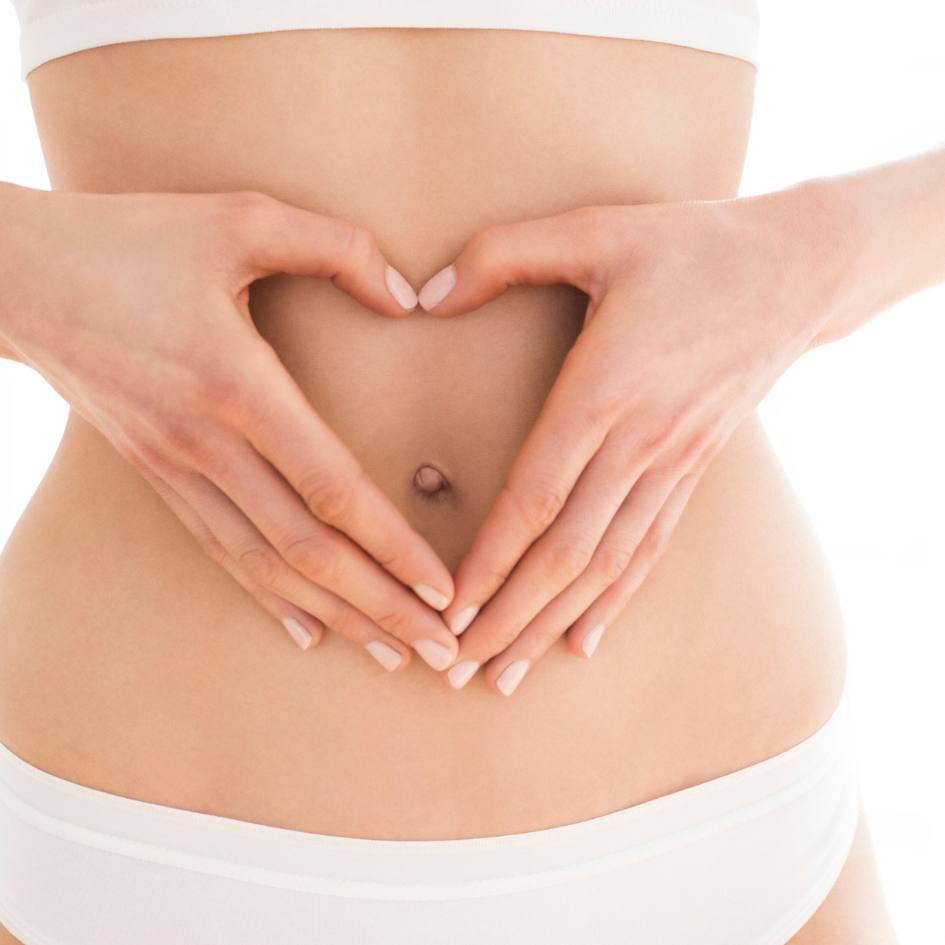
Proper digestion is necessary for a glowing complexion and overall skin health, because the digestive tract, more specifically the small intestine, is where we absorb and utilize the nutrients from our foods to nourish cells, tissues, and organs all over our body. Thus a healthy digestive tract and proper digestion is essential to our skin health.
The digestive tract is also how we eliminate waste and toxins accumulated in the body and we want to ensure we are helping those toxins get thoroughly eliminated.
You can tell your digestion needs improving if you feel bloated, constipated, lethargic, and gaseous. Your skin may also look dull, greasy, and prone to acne. Follow these steps to improve your digestion and consequently improve your skin health.
- Digestion begins in the mouth, so ensure you chew your foods to a liquid before swallowing. This will help the enzymes in your saliva begin the digestion process and your body will be better able to absorb nutrients.
- Ensure you get enough fibre in your daily diet. We often get skin problems when we have too many toxins in our body and fibre helps by binding to toxins for elimination as well as brushing the intestines clean.
- Drink plenty of water. Think of water as washing your insides clean and helping you with the elimination process.
- Add probiotics to your diet. Probiotics help make your gut healthy, which keeps your digestion healthy and your immune system strong. You can purchase a probiotic supplement, but also ensure you include pre-and-probiotics foods in your diet. Examples are yogurt, kombucha, and kefir, and sauerkraut.
2. Gently Cleanse Your Liver
The liver is another organ that helps rid the body of toxins that may show up on our skin. The liver detoxifies everything we put in or on our body, including chemicals on produce, toxins in our environment, and toxic substances on our skin. If our liver gets congested, it doesn’t work to optimization.
Some ways to gently cleanse our liver:
- Eat organic fruits and vegetables (Or stick to the Dirty Dozen and Clean 15.)
- Use natural face and body products (without parabens, phthalates, and other chemicals).
- Add lemon to your water to alkalize your body.
- Add a few drops of chlorophyll to your drinking water.
- Reduce alcohol consumption.
- Drink dandelion tea.
3. Eat Quality Protein – An Important Nutrition Tip for Glowing Skin
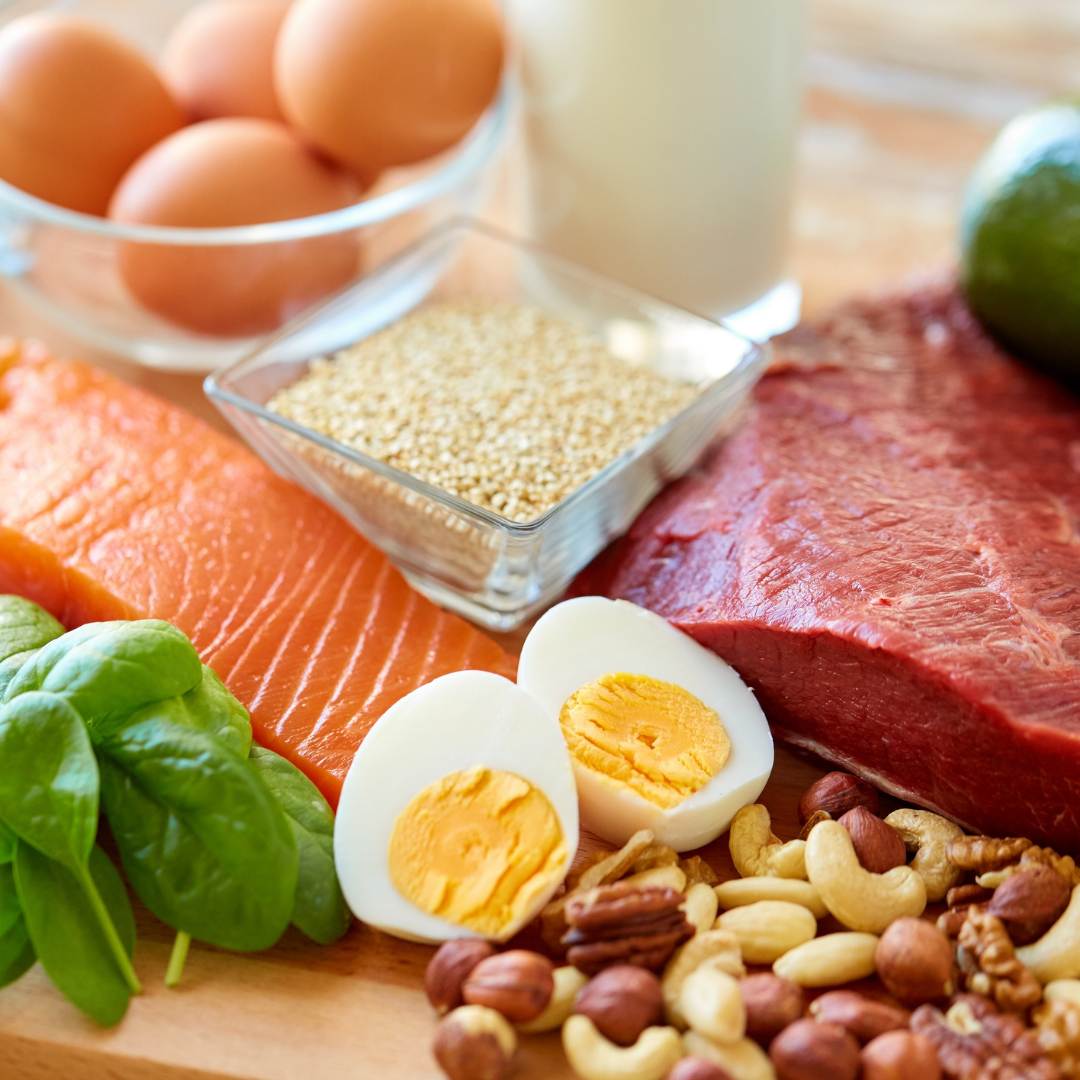
Amino acids found in dietary protein are the building blocks of collagen, elastin, and keratin, the structural substances that make up our skin and give it its texture and shape. Because of this, an adequate intake of quality protein is essential for plump, healthy, glowing skin.
Lysine, Proline, Glycine
The amino acids lysine, proline, and glycine are particularly important to skin health, because they are the primary amino acids involved in the synthesis of collagen. On top of that, lysine improves wound healing, proline helps repair skin damage, and glycine slows down the loss of cartilage in the joints and skin.
Lysine is considered an essential amino acid because the body does not make it and one must get it from their diet. Animal sources of lysine are yogurt, chicken, and shrimp and plant-based sources are quinoa, chickpeas, and pumpkin seeds.
Bone broth is an excellent source of glycine and proline, but can also be found in plant based foods like spinach, kale and cabbage.
Cystine
Another important amino acid for skin health is cystine. The body requires cystine to produce glutathione, a natural antioxidant known to fight free-radical damage. A deficiency in cystine has been shown to significantly slow down the growth of both skin and hair, and therefore, it is considered an essential anti-aging ingredient.
Animal Sources: Lean chicken breast, tuna, eggs
Plant-based Sources: Sunflower seeds, lentils, and oatmeal
Methionine
The amino acid methionine helps nourish the skin, protect the cells from pollutants, facilitate the detoxifying process, slow down the aging process, and help with the absorption of important antioxidants selenium and zinc.
Animal Sources: Salmon, eggs, and chicken (Try this delicious Teriyaki Salmon recipe.)
Plant-Based Sources: Brazil nuts, black beans, and tofu
Try this Chicken Mango Stir Fry for a good quality protein source that will help support skin health and help you acquire that glowing complexion.
4. Don’t Avoid the Good Fats
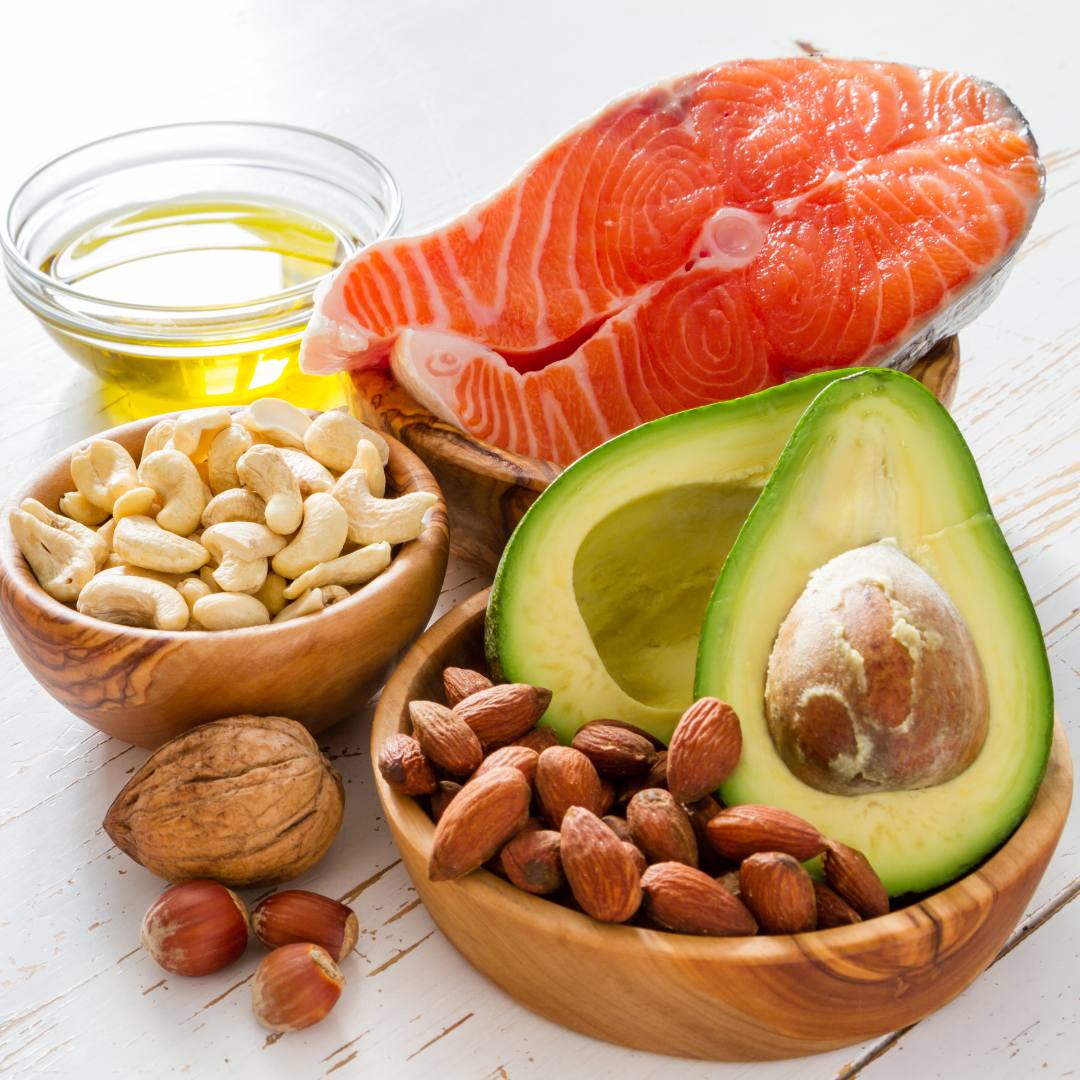
Fat plays many important roles in our body and skin health is one of them; therefore, we need good quality monounsaturated and polyunsaturated fat in our daily diet to maintain that healthy skin and glowing complexion.
Some monounsaturated fat benefits include hydrating the skin’s epidermis and supplying the ceramides (fatty acid compounds) that keep skin healthy and intact. Good sources of monounsaturated fats are olives, olive oil, almonds, avocados, and pumpkin seeds.
The essential fatty acids Omega 3 and Omega 6 are polyunsaturated fats that cannot be produced in our bodies, and therefore, we must get them in our diet. Omega-3s and Omega-6s are the building blocks of healthy cell membranes, they help with inflammation, fight oxidative stress, and produce the skin’s natural oil barrier, critical in keeping skin hydrated, plump, and glowing.
5. Include the Right Foods in Your Diet
Some vitamins and minerals play a larger role in skin health, skin elasticity, acne support, skin glow and you should ensure you consume the foods that contain them. The following table outlines the specific nutrients, how they benefit your skin health, and the food sources where you can find them.
| NUTRIENTS | SKIN BENEFITS | FOOD SOURCES |
| ANTIOXIDANTS – A, C, D, E, COQ10, SELENIUM, ZINC | ANTIOXIDANTS PROTECT THE BODY AND SPECIFICALLY THE CELL MEMBRANES FROM FREE RADICALS THAT CAUSE AGING, TISSUE DEGENERATION, AND SKIN DAMAGE. | |
| VITAMIN A | STIMULATES GROWTH OF THE BASE LAYER OF THE SKIN CELLS. HELPS SKIN CELLS WITH STRUCTURAL INTEGRITY. SPEEDS UP HEALING. PROMOTES NATURAL MOISTURIZING. | TOMATOES, LEAFY GREENS, CARROTS, SWEET POTATOES, EGGS |
| VITAMIN B COMPLEX | A GROUP OF B VITAMINS THAT TOGETHER PROMOTE SKIN AND HAIR HEALTH, FIGHT STRESS, AND BOOST ENERGY. | |
| VITAMIN B6 PYRIDOXINE | NEEDED FOR CELL DIVISION AND PROTEIN SYNTHESIS. | TUNA, SALMON, CHICKPEAS, SPINACH |
| VITAMIN B7 BIOTIN | NEEDED FOR FAT PRODUCTION AND IN THE SYNTHESIS OF FATTY ACIDS; THEREFORE, IMPORTANT FOR FORMATION OF NEW TISSUE, ESPECIALLY SKIN TISSUE, BECAUSE SKIN CELLS DIE AND ARE REPLACED VERY RAPIDLY. | EGG YOLKS, SWEET POTATOES, BROCCOLI, BANANAS |
| VITAMIN C | PROMOTES SKIN HEALING AND ACTIVATES FIBROBLASTS THAT HELP STIMULATE COLLAGEN. | CITRUS FRUIT, LEAFY GREENS, BERRIES, BELL PEPPERS |
| VITAMIN E | NECESSARY FOR TISSUE REPAIR. REDUCES UV DAMAGE TO SKIN. STRENGTHENS THE SKIN BARRIER FUNCTION. | SALMON, BROCCOLI, SPINACH, WHEAT GERM, HAZELNUTS |
| VITAMIN D | HELPS SKIN CELL GROWTH AND REPAIR. | SALMON, MUSHROOMS, EGGS |
| SILICON | OPTIMAL SYNTHESIS OF COLLAGEN AND FOR ACTIVATING THE HYDROXYLATION ENZYMES, IMPORTANT IN THE FORMATION OF COLLAGEN NETWORK, IMPROVING SKIN STRENGTH AND ELASTICITY. | BROWN RICE, GREEN BEENS, WHOLE WHEAT, SPINACH |
| SELENIUM | ANTIOXIDANT THAT PROTECTS CELLS FROM UV RAYS. | BRAZIL NUTS, OATMEAL, SPINACH, MUSHROOMS |
| ZINC | REDUCES INFLAMMATION AND HELPS HEAL TISSUES AND SMOOTH SKIN. | SHELLFISH, PUMPKIN SEEDS, EGGS |
6. Supplement your Diet
The perfect diet is often unattainable. We may be too busy to get all the nutrients in our meals, we can’t afford all the produce that can quickly perish, or our soil isn’t rich enough to grow good quality produce.
Therefore, taking a few supplements can be helpful, ensuring we are getting adequate amounts for optimal health. The following supplements are good ones to add for skin support among many other health benefits. Consult your physician if you are taking medications or have conditions where supplements may affect your health.
Vitamin B Complex – Ensures you get all your B vitamins necessary for stress, energy, and skin health.
Vitamin D – Important if you are not getting enough sun.
Vitamin C – Works as an antioxidant, getting rid of free radicals in the body and it helps builds your immune system.
Omega 3s – Harder to get in the diet, especially if you are not eating enough fish.
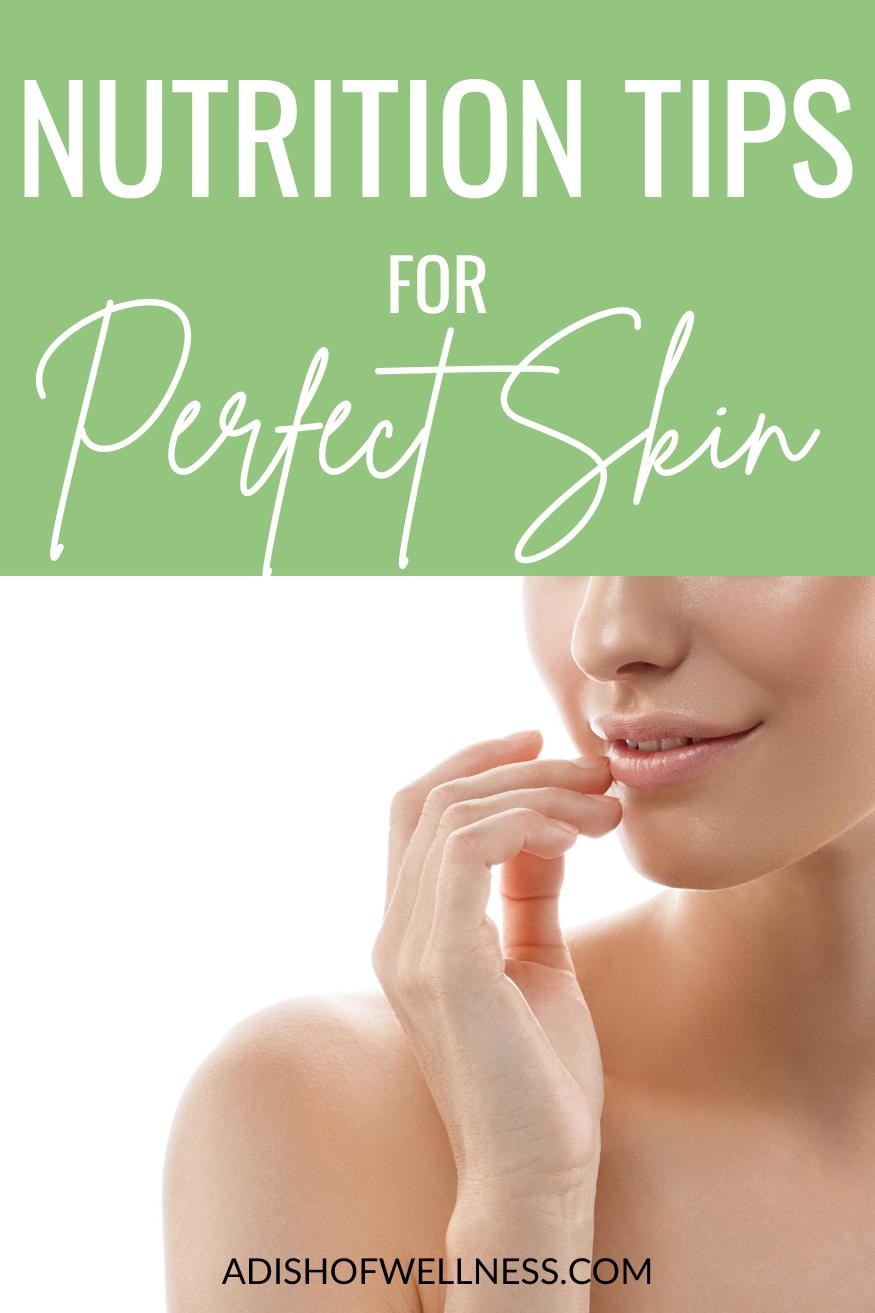
7. Stimulate Collagen Production
Collagen is a protein found in the bones, muscles, blood, and skin. It provides strength and structure within the body and strength and elasticity in the skin.
The body produces collagen from nutrients you get in your diet. These nutrients are the amino acids proline and glycine (more info about these amino acids in the protein section above), Vitamin C, zinc, and copper. So ensure you get these nutrients in your diet to help keep your skin young, strong, and glowing.
As one ages, existing collagen breaks down and it becomes harder for the body to produce. As a result, many people turn to collagen supplements. These supplements can be in liquid, powder, or capsule form with thousands of companies claiming their product to be the best, so do your research when looking for a good collagen product. Here is a link to more information on collagen products.
8. Drink Enough Water
Clean filtered water is important for all bodily functions and helps support cell, tissue, and skin health. Dehydrated skin looks dull, dry and grey, so ensure you drink enough of it every day.
Aim to drink half your weight in ounces of filtered water every day. For example, someone who weighs 150 lbs. would need a minimum of 75 ounces. Drink more if exercising and on a hot day. Rule of thumb: add 8 ounces for every 20 minutes of sweaty exercise.
9. Avoid These Foods
Some foods are considered anti-nutrients and inflammatory and do more harm than good to the body and skin health. Inflammatory foods include greasy fried foods, sugar, gluten, alcohol, processed and packaged foods. Try to avoid these foods as much as possible.
Wheat and dairy are also foods that have been known to cause negative skin conditions, such as acne and eczema and you may want to consider eliminating them to see if your skin condition improves.
Conclusion
Our skin health is a major reflection of our inner health and the nutrients we consume, and we need a wide range of nutrients to support our skin and boost its health. A holistic approach of healthy lifestyle, skin care procedures, and proper nutrition is the best way to ensure we are doing everything to support our skin health and acquire that beautiful glowing complexion.

